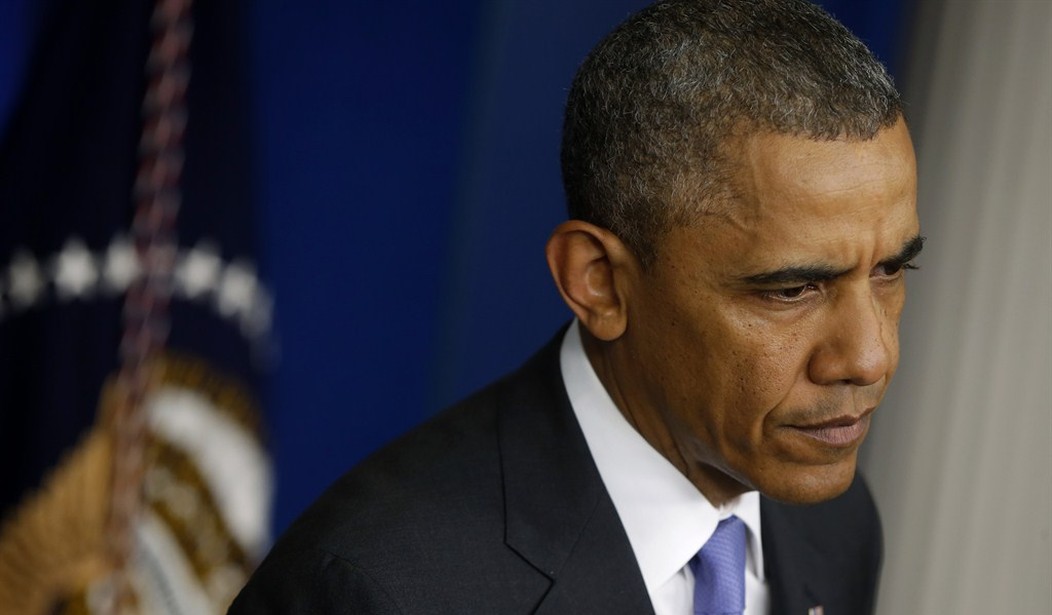The Hill previews healthcare consumers' upcoming summer slog, and it isn't pretty for Democrats:
States are nailing down dates to release 2015 premium costs under ObamaCare, and their decisions will guarantee a drumbeat of news about rate hikes all the way to the November midterm elections. Democrats are bracing for grim headlines that could put the unpopular law back at the forefront of voters’ minds. Premiums are expected to go up in a majority of states, as they do every year, but the size of the increases could go a long way toward determining how much political damage ObamaCare inflicts on vulnerable Democratic lawmakers. A survey by The Hill of state insurance commissioners found that news about ObamaCare premiums will hit nearly every week this summer (see list below), providing ample opportunity for Republicans to attack any significant premium hikes.
Prepare your spin teams, Senators Landrieu, Pryor, Hagan, Udall, etc:
A slew of states will publish proposed prices in June, including Colorado and Louisiana — where the GOP is targeting Democratic Senate incumbents. Others will wait until later in the season, including West Virginia and Arkansas. Sen. Mark Pryor (D-Ark.) voted for the Affordable Care Act in 2010, a fact that his opponent, Rep. Tom Cotton (R-Ark.), has repeatedly raised. Sen. Kay Hagan (D-N.C.), a top GOP target, will see her state publish rates on Aug. 15 or later. Health rates on the individual and small-group markets usually attract little to no attention from the political press. This year will be different.
We've written about initial rate increase estimates in Virginia and Washington State; now premium hikes in places like Hawaii (at least 13 percent), Indiana (up to 46 percent) and Rhode Island (12 percent) are coming into clearer focus. President Obama and Congressional Democrats promised skeptical consumers that everyone's rates would go down under Obamacare, by an average of $2,500 per family. Instead, according to McClatchy, "most" insurers are expected to increase costs, in some cases by double digits. Local media reports are highlighting adversely impacted citizens:
Recommended
What a bunch of "racists." In other Obamacare news, the Wall Street Journal reports that ER visits are on the rise nationwide, despite assurances from supporters of the new law that it would have the opposite effect. The administration warns that it's "too early to draw conclusions" based on the early 2014 data. But a years-long, gold-plated study out of Oregon has confirmed the trend: Expanding coverage through (failing) Medicaid and other means increases consumption and hospital visits. Massachusetts experienced the same phenomenon in the wake of Romneycare. Is it still too early to connect the dots based on that data? Then there's this massive headache-in-the-making, for which victims can thank the fine bureaucratic professionals responsible for Obamacare's still-incomplete websites:
The government may be paying incorrect subsidies to more than 1 million Americans for their health plans in the new federal insurance marketplace and has been unable so far to fix the errors, according to internal documents and three people familiar with the situation. The problem means that potentially hundreds of thousands of people are receiving bigger subsidies than they deserve. They are part of a large group of Americans who listed incomes on their insurance applications that differ significantly — either too low or too high — from those on file with the Internal Revenue Service, documents show. The government has identified these discrepancies but is stuck at the moment. Under federal rules, consumers are notified if there is a problem with their application and asked to upload or mail in pay stubs or other proof of their income. Only a fraction have done so, according to the documents. And, even when they have, the federal computer system at the heart of the insurance marketplace cannot match this proof with the application because that capability has yet to be built, according to the three individuals. So piles of unprocessed “proof” documents are sitting in a federal contractor’s Kentucky office, and the government continues to pay insurance subsidies that may be too generous...
Finally, in case you hadn't heard, Nevada has joined Oregon and Massachusetts in abandoning its costly state exchange in favor of Healthcare.gov. Maryland also threw its program overboard, but is spending even more money to adopt a separate system. I'll leave you with this explanation of the administration's unlawful expanded "bailout" of insurers, the purpose of which is to mitigate the rise in premiums -- at least in the very short (ie, political) term:























Join the conversation as a VIP Member